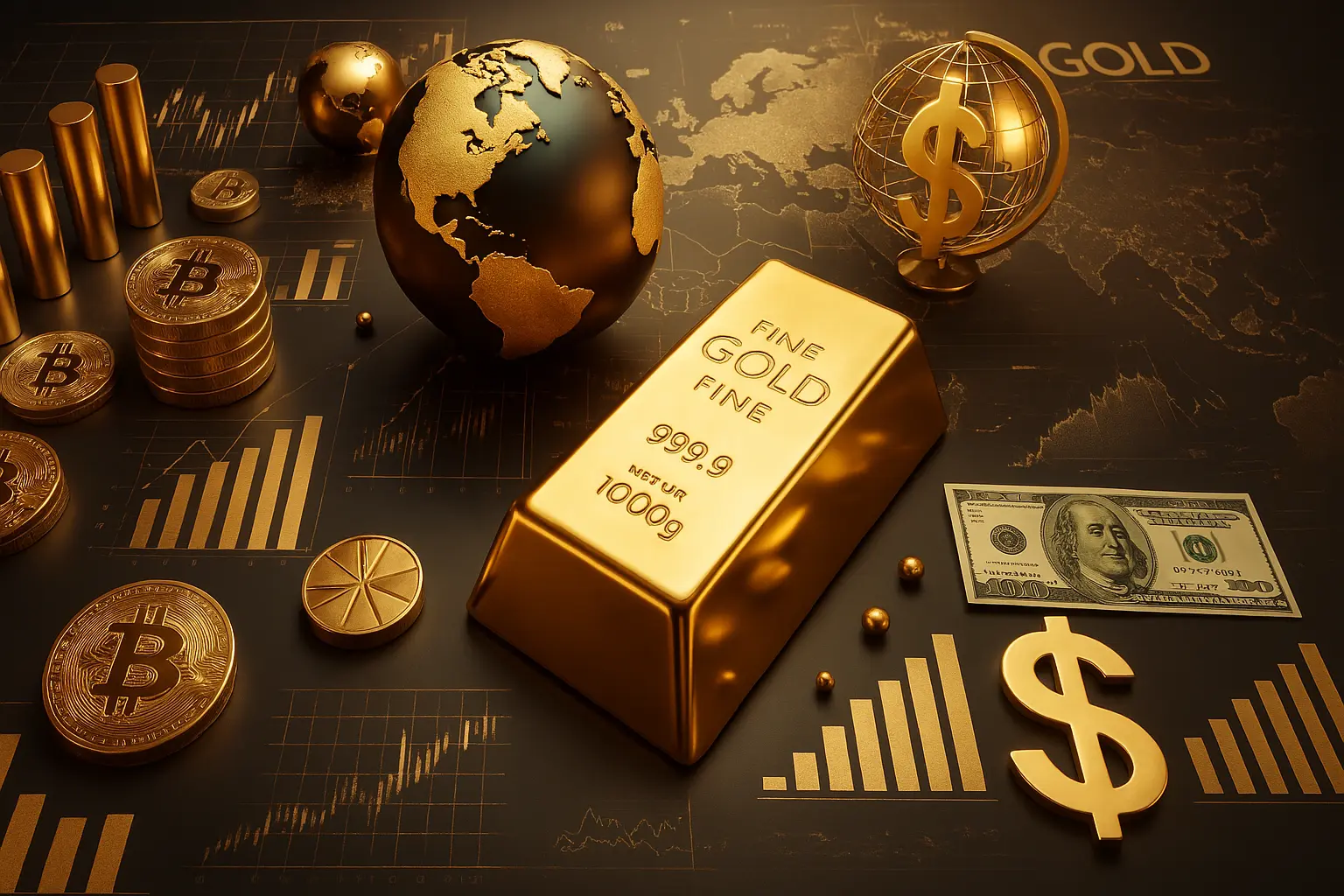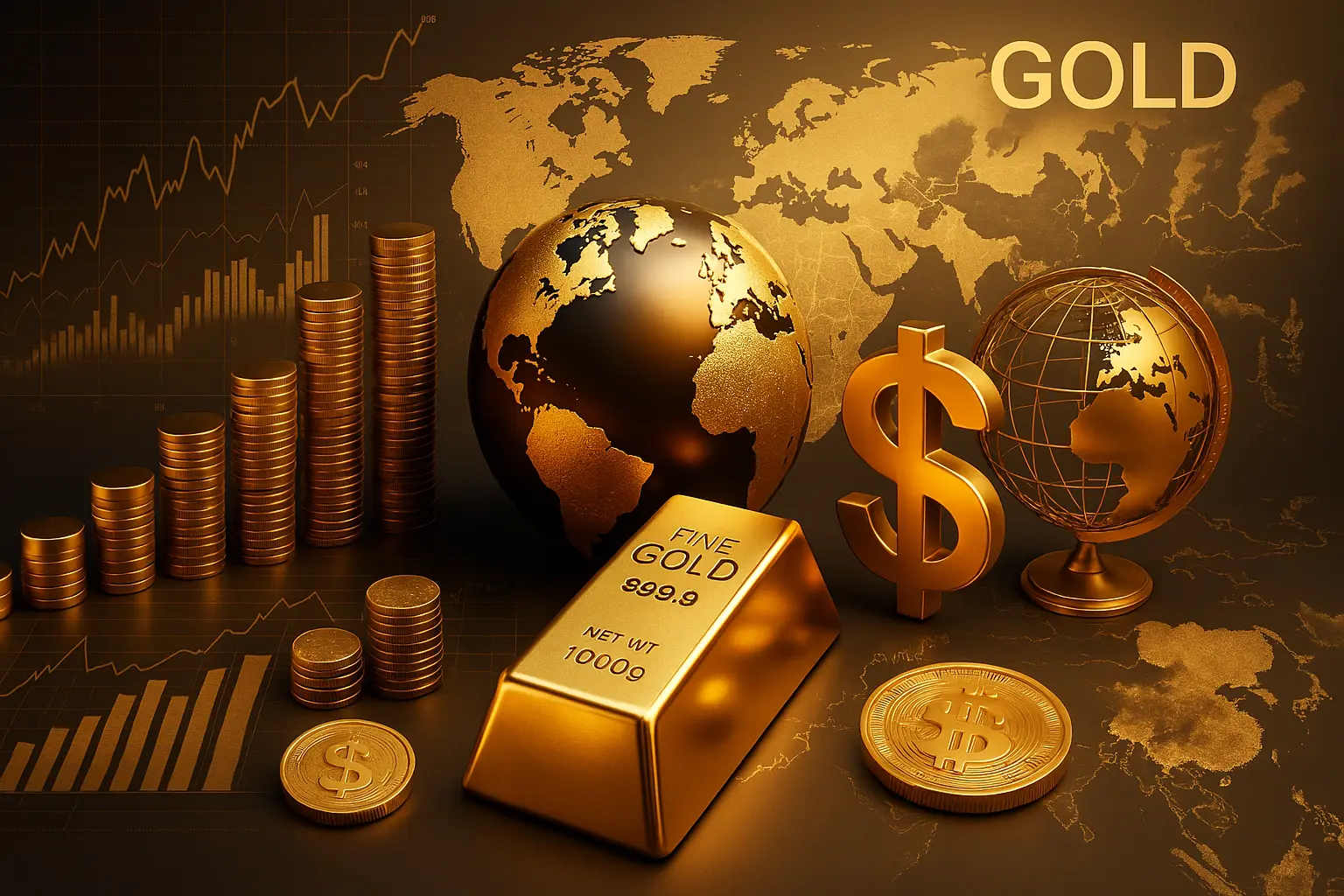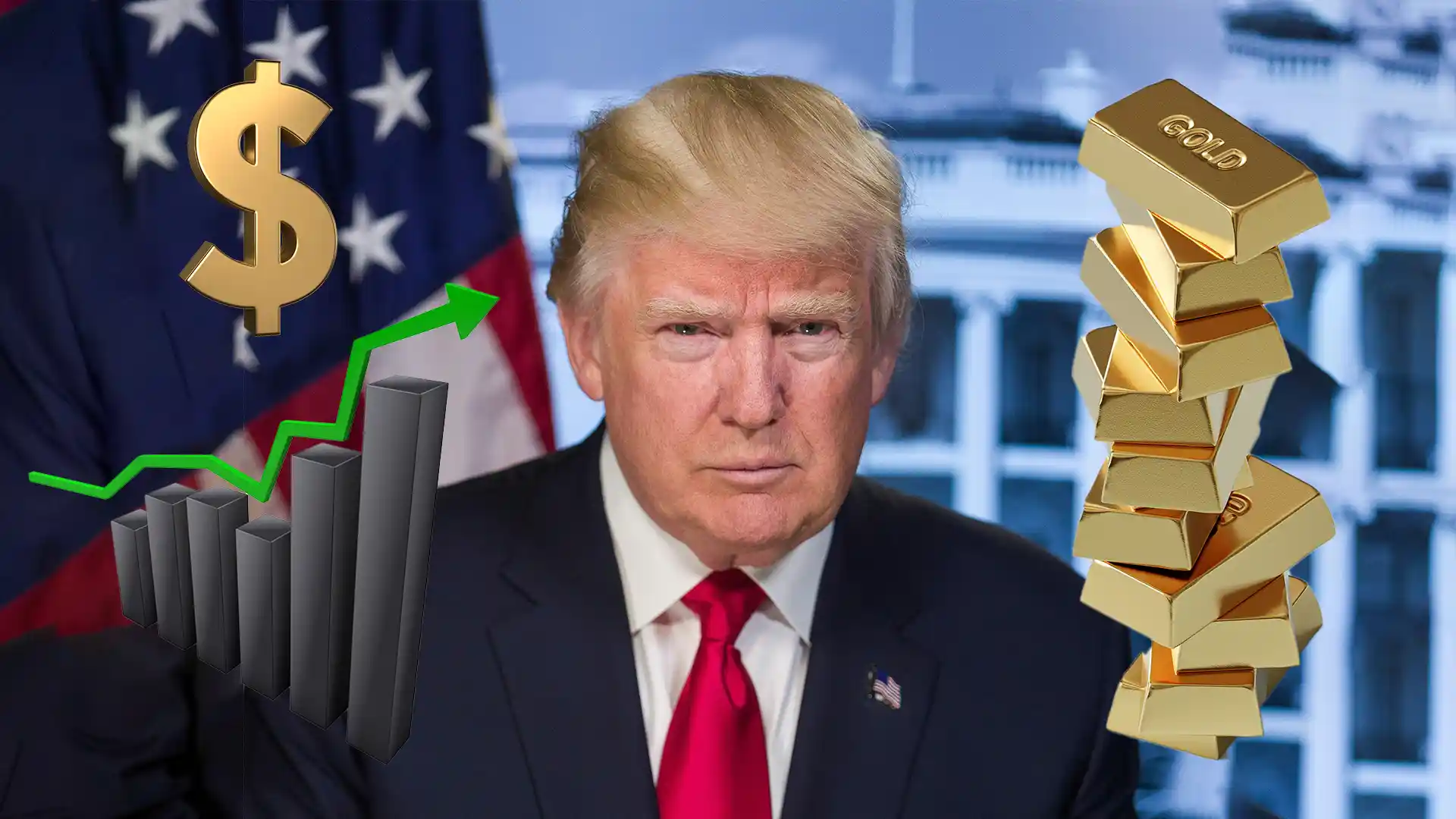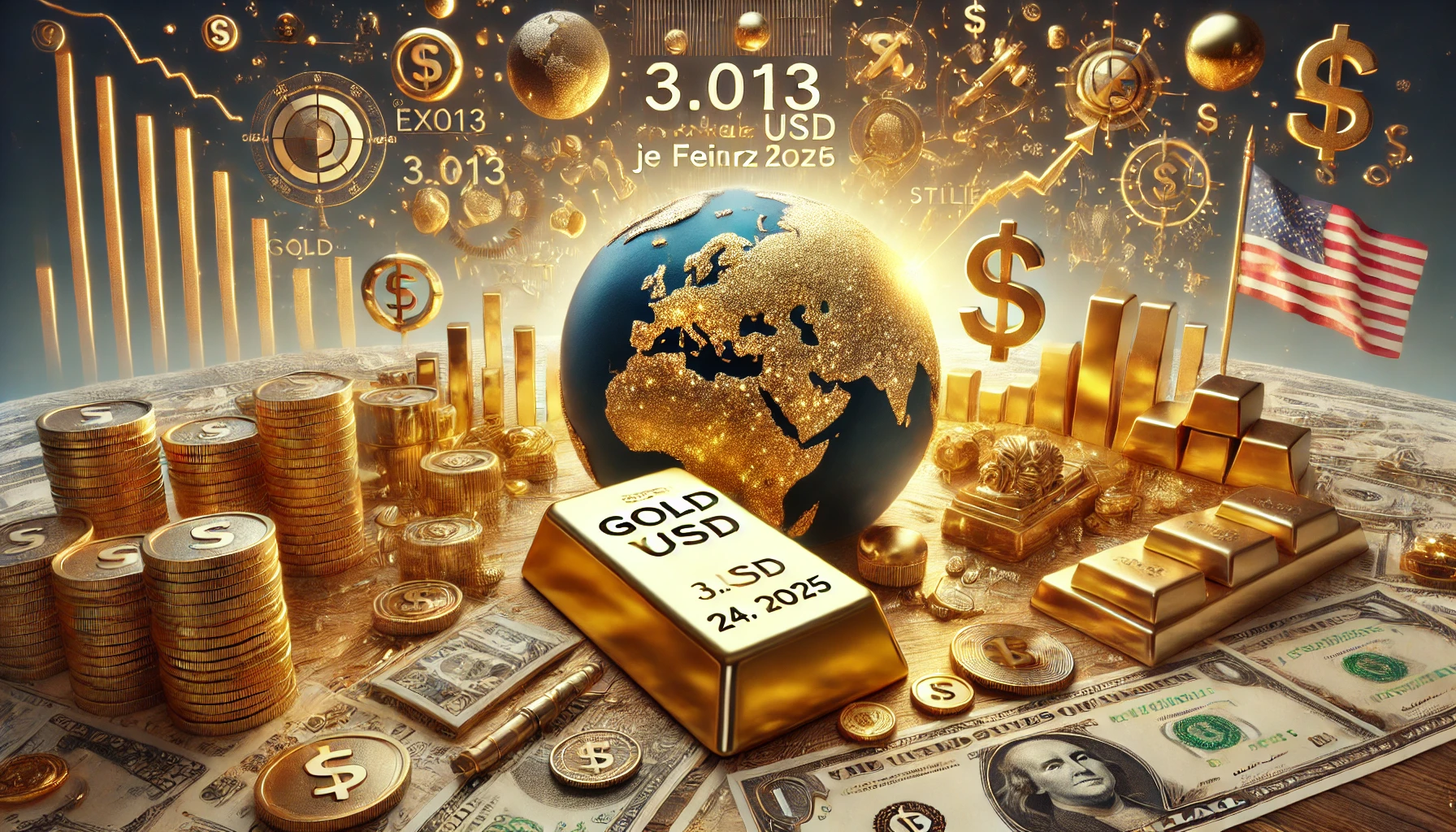Table of contents
Trends & Forecasts
Goldrush 2.0: These 10 countries are massively increasing their gold reserves
Dr. Mathias Kunze
Senior Consultant in Commercial and Tax Law
7 min.
Published on: 05.11.2024 | 14:20 UTC
Updated on:
12.11.2024 | 14:31 UTC

Ten leading nations in the expansion of gold reserves (2015–2024) as part of their long-term global economic strategy.
Source: ChatGPT (OpenAI)
Gold has long since become more than just a shiny precious metal – it is a stable anchor in a world full of uncertainties. From China to Poland: more and more countries are buying unprecedented amounts of gold, as if a new race for the precious metal had broken out. But there is much more to this trend than first meets the eye – a global strategy with implications far beyond what is visible at first glance.
Gold reserves as a strategic asset – The new currency of power
In modern economies, gold reserves play a central role in diversifying and stabilizing national economic systems. The increased interest of various countries in increasing their gold reserves is an indication of their efforts to create a more robust economic base. This is not only about protection against volatile currency fluctuations and inflation, but also about redefining economic independence from the world's dominant currencies, such as the US dollar and the euro.
The latest data from the World Gold Council show that countries that are newly emerging geopolitically and economically, or are located in unstable regions, have significantly increased their gold holdings. This step is often to be understood as an immediate response to external threats such as trade conflicts and political instability. Countries such as China and Russia, which have massively expanded their reserves, use gold both as a financial safety net and as a tool to strengthen their international negotiating position.
The decision to increase gold reserves reflects a deeper strategic planning aimed at making national economies less vulnerable to external shocks. These countries view their gold reserves as a form of “economic insurance” that can serve as a reliable reserve in times of crisis. By holding extensive gold reserves, they not only hedge their economies but also increase their influence on the global stage.
The continued accumulation of gold by these countries could lead to a long-term shift in the global balance of power, especially if they begin to use their gold reserves as leverage in international relations. This points to an increasingly multipolar world in which gold will play a key role in geopolitics.
Gold Boom – Top 10 Stockpiling Nations and Their Strategies
In recent years, ten countries have significantly increased their gold reserves. Each country has different but strategic reasons for doing so. The growing holdings reflect the economic and geopolitical ambitions of these nations.
China (1208.4 tons)
China is leading the gold accumulation boom and pursuing several goals. By increasing its gold reserves, the country aims to reduce its dependence on the US dollar and establish the renminbi as a stable international currency. The gradual appreciation of the gold share in its reserves supports China's long-term plan to reduce the influence of Western currencies and secure a more economically stable future.
Russia (1094.9 tons)
Russia's gold strategy is a direct response to Western sanctions. By decoupling from the US dollar and increasing its focus on gold as a reserve asset, Russia is seeking to achieve economic independence. The precious metal offers Moscow a solid foundation and protects the economy from international pressure, while at the same time strengthening the country's geostrategic position.
Turkey (454.2 tons)
Turkey has also invested heavily in gold to hedge against inflationary pressures and the devaluation of the Turkish lira. In a tense economic environment, gold offers Turkey a hedge to create stability and strengthen confidence in national economic policy.
India (264.3 tons)
India combined traditional and economic motives for increasing its gold reserves. Gold has a high cultural significance in India and is also a valuable component of the national strategy for diversification. The expansion of the holdings protects the economy against global uncertainties and strengthens financial stability.
Poland (255.6 tons)
Poland has significantly increased its gold reserves in order to create a more stable economic base and strengthen confidence in its own currency. The state regards gold as an essential component of its national stability strategy and as protection against external risks in an uncertain European environment.
Kazakhstan (112.2 tons)
Kazakhstan has steadily increased its gold reserves and uses the precious metal as a stabilizing element in its financial policy. Gold helps the country to reduce its dependence on other currencies and to ensure greater financial security in a geopolitically volatile region.
Singapore (109.2 tons)
As an emerging financial center, Singapore is hedging its bets with gold. Increasing its gold reserves strengthens confidence in Singapore as a stable financial market and protects against global market volatility. For Singapore, gold is a reliable reserve that supports the city state's position as a safe financial haven.
Hungary (91.4 tons)
Hungary is pursuing a strategy of economic independence and diversification. By expanding its gold reserves, Hungary is increasing its financial stability and signaling its independence within the European Union. Gold is used in Hungary as an insurance policy against possible economic fluctuations and geopolitical tensions.
Qatar (90.1 tons)
Qatar is investing in gold to strengthen its economic security and diversify its reserves. In view of the geopolitical tensions in the region, gold offers the Gulf state a reliable hedge and stabilizes its financial reserves independently of the fluctuations in the oil and gas business.
Uzbekistan (82.4 tons)
Uzbekistan, which is seeking to open up economically, is increasingly turning to gold to create a solid foundation for economic growth and financial independence. The precious metal helps the country to strengthen its financial system and hedge against international market fluctuations, making it an important element in its economic modernization.
Gold: The silent force behind global reserves
The massive increase in gold reserves over the past decade reflects much more than a preference for a precious metal that holds its value well. The underlying motives of the countries are deeply rooted in the search for stability, independence and economic resilience. Gold is increasingly becoming a means of protecting against the uncertainties of a globalized and volatile economy – a development that has profound implications for international fiscal policy and the global power structure.
The motives behind the gold trend – economic sovereignty and protection against inflation
The increase in gold reserves serves in particular to protect against currency devaluation and inflation. While fiat currencies are strongly influenced by economic and political decisions, gold offers a stable security against such fluctuations. Countries such as China, Russia and India see gold as a way to become financially less dependent on Western currencies such as the US dollar and the euro. This trend is particularly pronounced in geopolitical flashpoints such as the Middle East and Eastern Europe. Nations with a heavy reliance on commodity exports, such as Qatar, see gold as a hedge against fluctuations in the commodity markets and the often unstable price trends of oil and gas.
In addition, gold allows these states to strategically diversify their reserves by eliminating traditional financial instruments such as bonds, which often lose their value in times of crisis. The crises of recent years – from the sanctions against Russia to the trade conflicts between China and the US – have intensified the trend. Gold is not only a store of value, but also a form of “economic insurance” against the unforeseen.
The importance of gold in the future – a sustained upward trend?
It is highly likely that the gold reserves of many countries will continue to rise. In a multipolar world order characterized by constantly changing alliances and political uncertainties, gold remains a reliable anchor for national financial systems. Countries that in the past relied primarily on the US dollar or the euro as reserves now seem to be focusing on the security of gold. The long-term trend shows a development towards a “new gold standard” as a hidden reserve that is not subject to the fluctuations of international monetary policy.
At the same time, technological advances and the increasing importance of cryptocurrencies will not significantly affect the importance of gold as a stabilizing factor. Gold is and remains a physical commodity that exists independently of digital infrastructure and thus also independently of cyber risks. For those countries that are exposed to geopolitical or economic risks, this stability is irreplaceable.
Gold as a power factor – The essence of economic stability
Gold has established itself as an indispensable reserve for countries seeking to defend their economic sovereignty and independence. Beyond the fluctuations of currency markets and the whims of political systems, it offers stability and trust – qualities that are more valuable than ever in today's volatile economic climate. For states seeking to strengthen or hedge their financial position, gold is not a relic of the past, but a central building block for the future.
The next few years will see a further increase in global gold reserves as nations bolster their reserves to counter market volatility. Gold will thus remain not only a store of value but also a geopolitical tool that countries can use to secure their influence and cushion economic crises. It stands as a symbol of permanence and self-determination and will continue to serve as a solid anchor of value that stands the test of time in a complex and dynamic world.
Dr. Mathias Kunze
Senior Consultant in Commercial and Tax Law
Blog

All-time high: Gold price breaks through USD 3,000 for the first time

Gold in industry: A detailed analysis of its interactions with halogens and in cyanide solutions







